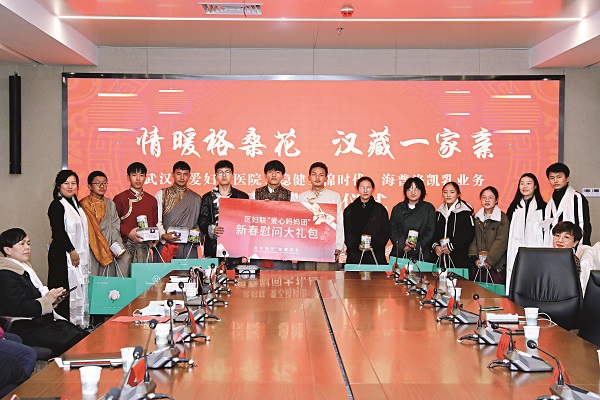What Yellen discusses in China will be a weather vane
After many days of speculation, it was finally confirmed by both Chinese and American sides that US Treasury Secretary Janet Yellen will visit China from July 6 to 9. Following US Secretary of State Antony Blinken's visit to China nearly three weeks ago, this visit by another high-ranking US official indicates, to a certain level, a gradual restoration of communication channels between the two countries. As one of the key figures responsible for US economic and trade affairs, Yellen's visit to China has attracted special attention, as it is believed to hold significant importance. This reflects the expectations of stability in China-US economic and trade relations amid the global economic downturn.
Compared with her counterparts in Washington, Yellen has a relatively pragmatic attitude toward China. She has previously expressed opposition to "decoupling" from China and advocated for establishing "necessary" and "constructive" economic relations with China. She has also expressed her desire to visit China on multiple occasions. In a recent hearing last month, Yellen stated that it is not in US' interest to stifle the economic progress of the Chinese people, and that the US should applaud for China's success in lifting hundreds of millions of people out of poverty. Therefore, whether Yellen's visit can achieve pragmatic results holds symbolic significance: whether Washington is focusing on "competition" or cooperation represents a certain weather vane to judge whether rationality remains in Washington's China policy.
However, before Yellen sets off, Washington has already revealed a number of crucial messages, and these complex signals are worth careful interpretation. Alongside the announcement of Yellen's visit to China, the US once again emphasized the so-called "three principles" regarding economic relations with China, which were proposed by Yellen in a speech in April. This seems to set the tone for Yellen's trip to China in advance, but these "three principles" do not release many positive signals for dialogue. The first principle emphasizes the protection of US and its allies' "national security interests," which raises concerns about an overarching securitization. If the US cannot break free from its stubbornly tough stance on China, can the professional voice from US finance field break through the obstacles and bring tangible results for China-US economic and trade cooperation? When the concept of "national security" has become an omnipresent fog, whether Yellen can avoid the "security trap" remains a question.
We also noticed that, some US officials said Yellen's trip will not achieve significant "breakthroughs," but they hope "to have constructive conversations and build longer-term channels of communication with China's new economic team." Washington officials' "low expectations for breakthrough" indicates one thing: the US political circle is well aware of China's position and attitude when communicating with US officials. On the one hand, China is willing to actively engage in communication with US officials and strive to achieve cooperation results through dialogue; on the other hand, China always maintains a firm stance on its core interests and principles.
In order to make this visit fruitful, instead of basing expectations of "breakthroughs" on a "US First" approach, the US would be better to start with the most realistic issues in the current China-US economic and trade field.
For example, the tariffs imposed on Chinese goods during the Trump administration have not been abolished, and the fact has already proven that it harms both parties. Currently, the tariff on US products imported to Chinese is 7.1 percent, while the tariff on Chinese exports to the US is 19.2 percent, which is unequal. In addition, the high tariffs are borne by American businessmen and the public, and they also have an impact on US' inflation. However, the Biden administration done nothing to correct this mistake.
Furthermore, the US is currently abusing the concept of national security to a severe extent, even trampling on the principles of free trade and international market rules. This has seriously disrupted normal investment and trade activities between the two countries, with more than 1,300 Chinese entities still on various US control and sanctions lists. When everything is being connected to national security, it becomes difficult to do business. Yellen, as the US Treasury Secretary, should understand that such harm is by no means one-way.
We believe that if Yellen's visit can achieve some substantive progress, it would bring more certainty and stability to the business communities of both China and the US, which would be much more beneficial than the "breakthroughs" envisioned by Washington's anti-China politicians.
Also in the near future, US Special Presidential Envoy for Climate John Kerry will visit China again, and US Commerce Secretary Gina Raimondo is also reportedly planning to visit China. Achieving a series of contacts and interactions under highly tense circumstances between China and the US is not easy. The key to making them truly valuable lies in whether both sides can promote practical matters that benefit both countries and their peoples with a professional and pragmatic attitude. China has always adhered to the principles of mutual respect, peaceful coexistence and win-win cooperation in dealing with the US. We hope to see tangible actions from the US to meet each other halfway.
Related articles

Oracle bone script art exhibition unveiled in South Africa
To celebrate the 2024 UN Chinese Language Day, the opening ceremony of "The Spirits on Turtle S2024-04-30
Providing Heartwarming Services to Children
Contact Us HomeNewsHighlightACWF NewsSocietyWom2024-04-30
Tibetan Students Receive Care, Education in Wuhan
Contact Us HomeNewsHighlightACWF NewsSocietyWom2024-04-30
Centenarian Doctor Committed to Defeating Leprosy
Contact Us HomeNewsHighlightACWF NewsSocietyWom2024-04-30
Ecuador announces complaint against Mexico at top UN court in diplomatic spat
QUITO, Ecuador (AP) — Ecuador announced Monday it has filed a complaint at the top U.N. court agains2024-04-30
Mother's Entrepreneurship Recycling Fund Celebrating 25th Anniversary
Contact Us HomeNewsHighlightACWF NewsSocietyWom2024-04-30

atest comment